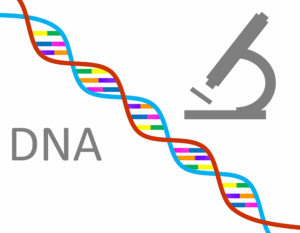Language barriers hinder global accessibility of Laboratory Reports and Scientific Data, but multilingual translation services, especially automated machine translation (AMT), are vital for fostering international collaboration, knowledge exchange, and inclusivity in scientific research. Accurate translation ensures these crucial documents maintain integrity, enabling cross-cultural sharing of expertise and accelerating global advancements.
In today’s global scientific community, effective communication is key. Multilingual translation services are no longer a luxury but a necessity for labs and researchers dealing with laboratory reports and scientific data. This article explores the growing importance of removing language barriers in science, focusing on the specific needs of lab documentation and data interpretation. We delve into strategies to ensure accurate and reliable translations, ultimately fostering global collaboration and knowledge-sharing.
- Addressing Language Barriers in Lab Reports
- The Role of Translation in Scientific Research
- Ensuring Data Integrity Across Languages
- Efficient Multilingual Solutions for Scientists
Addressing Language Barriers in Lab Reports
Language barriers can significantly hinder the accessibility and impact of laboratory reports and scientific data, especially in a globalized research landscape. These barriers create a divide, making it challenging for researchers from diverse linguistic backgrounds to collaborate effectively and share critical findings. To overcome this, embracing multilingual translation services is essential.
By translating lab reports and scientific literature into multiple languages, researchers can ensure that their work reaches a broader audience. This approach fosters international collaboration, enables knowledge exchange, and promotes inclusivity in science. It allows specialists from different regions to contribute their expertise, share discoveries, and advance research globally.
The Role of Translation in Scientific Research
Ensuring Data Integrity Across Languages
Maintaining data integrity is paramount in scientific research, especially with the global collaboration that often comes into play. When it comes to laboratory reports and scientific data, accurate translation is crucial to ensure consistency and reliability across different languages. A simple linguistic error can lead to misinterpretations or even invalid conclusions, compromising the entire study.
To safeguard against this, advanced translation technologies and human expertise should be employed. Automated tools must be rigorously tested and validated for their ability to capture intricate scientific terminology accurately. Simultaneously, human translators with a deep understanding of both source and target languages ensure conceptual fidelity, translating not just words but also the nuanced meaning behind them. This combined approach guarantees that laboratory reports and scientific data remain intact and reliable as they traverse linguistic boundaries.
Efficient Multilingual Solutions for Scientists
In today’s global scientific community, efficient multilingual solutions are paramount for scientists working with laboratory reports and scientific data. The ability to communicate research findings accurately across language barriers is essential for collaborative work, knowledge sharing, and the advancement of science itself. Advanced translation technologies play a pivotal role in this process.
Automated machine translation (AMT) platforms, powered by artificial intelligence, offer a cost-effective and rapid way to translate laboratory reports and scientific data. These tools can handle complex terminology specific to various fields, ensuring precision and fidelity in the translated content. Moreover, they enable researchers to access a wealth of global literature, fostering international collaboration and accelerating scientific discovery. With continuous improvements in AI translation models, the future looks promising for seamless multilingual communication in science.
Multilingual translation for laboratory reports and scientific data is no longer a niche concern but an essential tool for global scientific collaboration. By addressing language barriers, translation plays a pivotal role in fostering inclusivity and enhancing research accessibility. Ensuring data integrity across languages is crucial for accurate interpretation and reproducible results. Efficient multilingual solutions not only streamline communication but also revolutionize the way scientists share knowledge, ultimately advancing global scientific progress.
